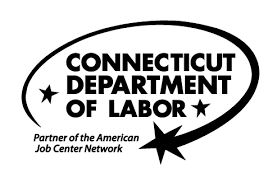Connecticut Department of Labor and Training Releases Non-Binding Guidance on Recent Wage Law
The Connecticut Department of Labor and Training has issued guidance regarding Public Act 21-30 (“the Act”) concerning the duty employers have to disclose wage ranges for vacant positions. This guidance is aimed at helping employers and employees understand the provisions of the Act that became effective on October 1st.
The Connecticut Department of Labor and Training has issued guidance regarding Public Act 21-30 (“the Act”) concerning the duty employers have to disclose wage ranges for vacant positions. This guidance is aimed at helping employers and employees understand the provisions of the Act that became effective on October 1st.
The purpose of the Act is to prohibit employers from failing to, or refusing to, provide the wage range for vacant positions. Employers must provide an applicant with the wage range at the earlier of either the applicant’s request or prior to, or at the time, an offer is made to them. Further, employers are prohibited from failing, or refusing, to disclose the wage range to current employees upon hire, a change in the employee’s position, or the employee’s first request for a wage range.
The Act defines wage range as “the range of wages an employer anticipates relying on when setting wages for a position, and may include reference to any applicable pay scale, previously determined range of wages for the position, actual range of wages for those currently holding the position, or the employer’s budgeted amount for the position.” The Act defines employer as “an entity within Connecticut using the services of one or more employees.” The provisions of this legislation apply to employees who work physically in Connecticut and to those who work remotely for an employer physically in Connecticut. Therefore, an employee who works remotely for an employer in Connecticut, but never steps foot in Connecticut, is covered under the Act.
In light of this recent guidance, Connecticut employers should review their policies and procedures to make sure they are in compliance with the Act’s requirements.
If you have questions about this guidance, or any other general employment issues, please do not hesitate to contact the attorneys at The Royal Law Firm at 413-586-2288.








